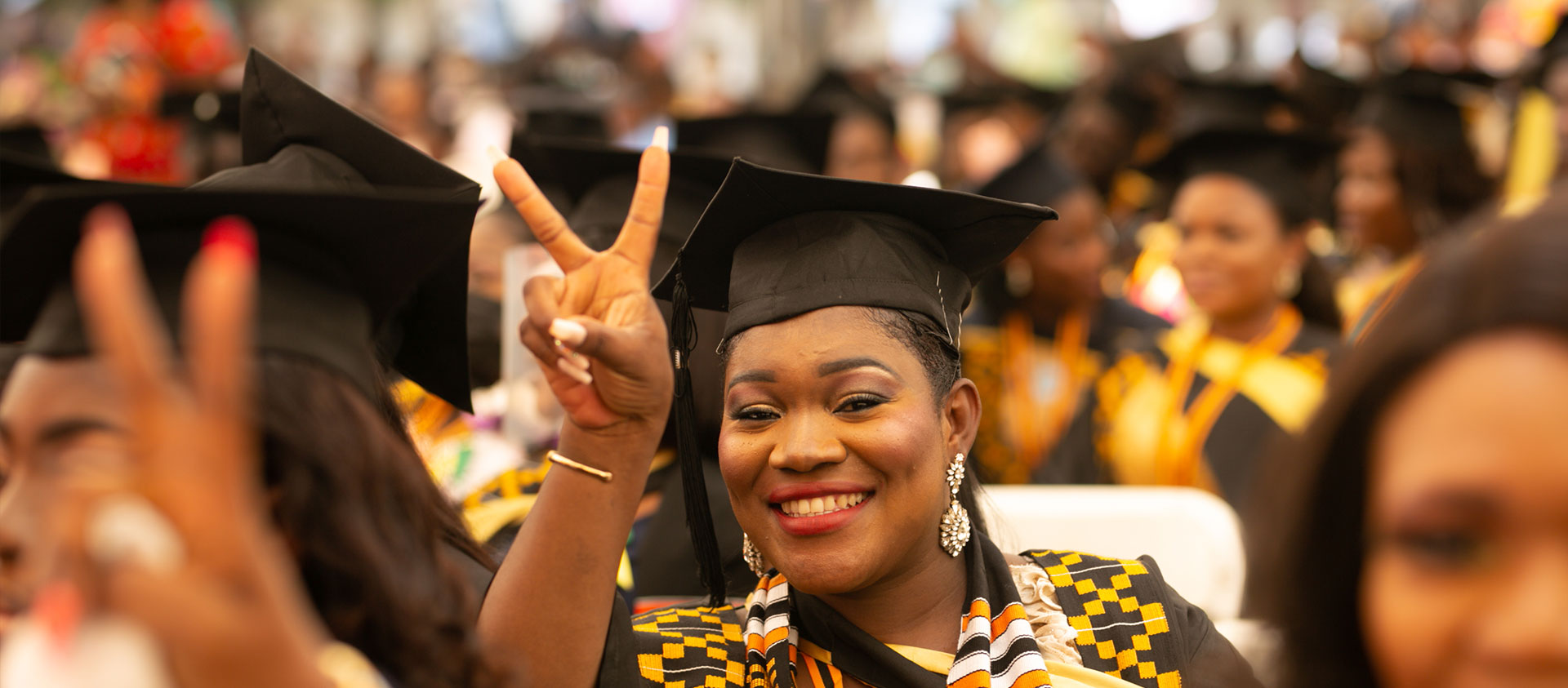Juggling Academics and Motherhood: AUCC Student-mothers on Their Unwavering Journey

Being a student by itself can be frustrating; being a student and a mother balancing the act on the dual responsibility of keeping homes and pursuing academic goals can be another level of exasperation. Student-mothers face a unique situation in their quest to equip themselves with knowledge and skills.
In the bustling halls of the African University College of Communications (AUCC), a cohort of such resilient student-mothers is doing just that – making their mark, balancing the demanding responsibilities of academia and parenthood. These women, with unique narratives etched into their lives, shared their triumphs and tribulations, illuminating the challenges of raising children while striving for academic excellence.
Joana, 39, a determined Level 300 Development Communications student, recounted her arduous journey to AUCC, juggling her role as a lactating mother with the rigors of academic life.
“I bring my ‘Baby Degree’ to campus,” she remarked, “alternating between lectures and caring for my child, often studying during the late hours of the night.”
She said her most challenging issues are about scheduling, getting work or assignments done at home, while simultaneously taking care of her daughter and recovering from her pregnancy.
“I only get the chance to learn at odd hours of the night. When I am in school, I’m a student, but when I’m home, I’m a mom,” she said.
Adubea, 28, a Level 300 Strategic Communication student, narrated a tale of unexpected pregnancy during her academic prime. Amidst the dilemma of continuing her education, she confronted society’s scrutiny, health complications, and the emotional turmoil of an unplanned pregnancy.
“Having to constantly switch between being a student and a young mother is no easy feat, especially that pregnancy being my first time ever,” she recalls, explaining how frustrated and confusing it was for her to decide on whether to abort the baby, defer her course, or ultimately stop schooling.
“I felt so uncomfortable attending lectures, [which I had to do] to avoid further discussions about me. I really didn’t know what to do next, as I couldn’t even confide in my mom, friends or colleagues about it.”
Upon several deliberations, Adubea decided to keep the baby, and stay in school to write the exams regardless.
Doreen, 35, a wife and mother of three daughters, recounts the challenges of commuting from the outskirts of Accra to attend lectures, all while preparing for her third child who was conceived in the second semester of Level 200.
“I was heavily pregnant then, but I still managed to attend lectures, despite my house being at the outskirts of town [and the campus being in the heart] of the city. Commuting from such far place to attend lectures was [a] challenge to behold.”
Doreen gave birth to her third daughter two weeks to the end-of-semester examinations.
“To write or not to write and hold on, or defer my course were everyday thoughts that keep circulating on my mind. I remember I have to reach out to my colleagues to get notes or recordings of the lectures during my labor period at home. I decided to write at all cost [despite advice from] family and fellow colleague students.”
Doreen said as a new mom, she needed a three-month period to fully heal, but she was back in school within two weeks to write her exams.
“I was nursing my baby on campus. Luckily, I got my mother and husband as a support system who stood by me throughout the exams period.”
Research underscores the transformative power of education, particularly in empowering women and achieving critical developmental goals. Initiatives to facilitate female education, including providing support for student mothers, are essential in fostering equitable educational opportunities and propelling societal progress.
There are invisible rewards to the resilience.
“Now, I look back with so much satisfaction after realizing I took a bold decision that was laborious,” says Joana, “but I wanted to be a better person by fighting my own academic battle and make it work. I am glad I did not give up. I never wish for any woman to go through my experience, because it has been times of stress, frustrations and disappointments.”
Adobea echoes the sentiment.
“I took this risk and later became proud of it, though it was a life-challenging moment for me. I will therefore advise other women who are going through similar situation to be courageous than giving up. It is a phase, it will dissipate soon.”
Despite the hurdles, Doreen steadfastly pursued her studies, advocating for on-campus childcare facilities to support student mothers like herself in their academic pursuits.
“I think AUCC should provide on-campus childcare facilities which can greatly assist student-mothers like me and others to come in the future, to cushion our burden. This should be flexible in hours, affordable in rates, with high-quality care,” advised Doreen.
According to research, education is one of the most empowering tools for human development, especially that of female education. Under Sustainable Development Goal (SDG) 4, the international community has pledged to “ensure inclusive and equitable quality education and promote lifelong learning opportunities for all”.
A number of countries, including Ghana, have implemented various interventions not only to enable them meet the 4th SDG, but also to encourage the upward education for females to the tertiary level through affirmative action.
The stories of these AUCC student-mothers echo a larger narrative of perseverance, resilience, and the unyielding pursuit of education in the face of formidable odds. As their voices resound within the academic corridors, their experiences serve as a testament to the enduring spirit of maternal scholars navigating the complexities of both academia and motherhood.
- Hits: 5069



